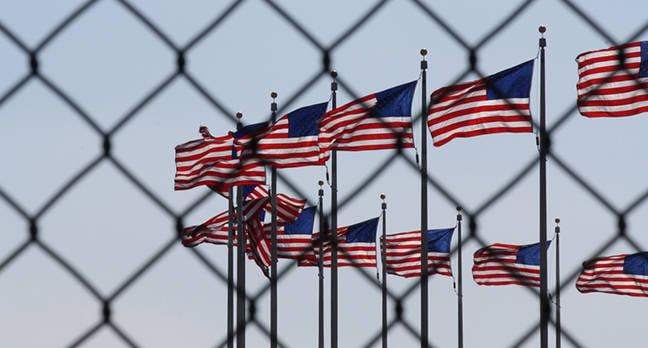White House Pushes For Total Ban On US Exports To Huawei

The US government is reportedly going to halt all Amercian technology export licenses to Huawei as the Biden administration inflicts a total ban on the sale of goods to the Chinese business.
The prohibition would completely cut off Huawei maker from a range of components, including those from Qualcomm, which has retained an export license to supply Huawei with smartphone chips.
Nikkei Asia claims that the US Department of Commerce has already begun notifying some companies that it will no longer grant licenses but the Department of Commerce says officials continually assess the department's policies and regulations, and they could not comment on talks involving specific companies.
Huawei itself declined to comment as there has been no official announcement of any change in policy.
Meanwhile, the Chinese government is said to be seriously concerned about the direction of travel, with a spokesperson from the Ministry of Foreign Affairs telling reporters at a briefing that it is closely following developments.
Further clamping down on Huawei will intensify Washington's campaign against Chinese organizations that the government believes may pose a risk to national security.
According to other reports, the Biden administration is coming under increasing pressure from the Republican politicians controlling the House of Representatives to get tougher on China and limit its access to advanced technology as much as possible.
- Japan, Netherlands reportedly join US in China tech export ban
- Chinese mobe-makers play a long game with homebrew chips
- US sanctions drain Huawei of homegrown advanced chips
- US adds 36 Chinese entities to naughty list, drops 25 after checking it twice
Just this week, the US is reported to have struck a deal with Japan and the Netherlands to introduce a coordinated policy of tighter restrictions on critical chipmaking and silicon technologies to China, with the three Western nations being the main suppliers of the photolithography systems that play a crucial part in the manufacture of advanced semiconductors.
But there have been warnings the US dispute with Beijing will have an impact beyond China. As we reported last year, cutting off access to Chinese technology will raise prices for businesses and consumers around the world, at a time when many are already facing the threat of rising inflation.
The vice chair of Japanese memory maker Kioxia also warned late last year that reorganizing supply chains to cut out China would be costly and have unintended consequences.
Huawei has been feeling the effect of sanctions since 2019, and the US has also leaned on its partners and allies to follow suit, especially when it comes to using Huawei networking kit in 5G cellular networks.
Last October the UK government issued formal legal notices to telcos instructing them to remove Huawei technology from the country's 5G networks by the end of 2027, despite complaints from the industry that this would delay 5G rollouts and drive up costs.
The Shenzhen-based outfit has been working to switch from its lines of business that were the most hurt by US sanctions, such as its Android smartphone portfolio, to find other ways of staying profitable.
This inevitably involves more of a domestic focus, with Huawei making efforts to diversify its revenue streams into domestic industries and in helping the Chinese government to digitalize. It also has a huge cloud business in the Middle Kingdom. ®
From Chip War To Cloud War: The Next Frontier In Global Tech Competition
The global chip war, characterized by intense competition among nations and corporations for supremacy in semiconductor ... Read more
The High Stakes Of Tech Regulation: Security Risks And Market Dynamics
The influence of tech giants in the global economy continues to grow, raising crucial questions about how to balance sec... Read more
The Tyranny Of Instagram Interiors: Why It's Time To Break Free From Algorithm-Driven Aesthetics
Instagram has become a dominant force in shaping interior design trends, offering a seemingly endless stream of inspirat... Read more
The Data Crunch In AI: Strategies For Sustainability
Exploring solutions to the imminent exhaustion of internet data for AI training.As the artificial intelligence (AI) indu... Read more
Google Abandons Four-Year Effort To Remove Cookies From Chrome Browser
After four years of dedicated effort, Google has decided to abandon its plan to remove third-party cookies from its Chro... Read more
LinkedIn Embraces AI And Gamification To Drive User Engagement And Revenue
In an effort to tackle slowing revenue growth and enhance user engagement, LinkedIn is turning to artificial intelligenc... Read more

